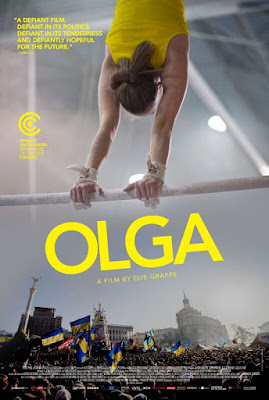Switzerland has gone fascist. Maybe it was funded by some of those Swiss accounts looted during WWII, the last time the Swiss were showing some fascist tendencies. Cheese is the instrument of control for President (for life) Meili. It makes the Swiss people docile and stupid. Consumption is mandatory and lactose intolerance has been criminalized. However, Meili’s storm-troopers pick the wrong mountain lass to mess with in Johannes Hartmann & (“co-director”) Sandro Klopfstein’s Mad Heidi, which has a special nationwide Fathom Events screening this coming Wednesday.
It is still relatively peaceful up in the Swiss Alps, where the orphaned Heidi lives with her grandfather Alpohl, a former revolutionary, when she isn’t rolling in the hayloft with Goat Peter, a (not so lonely) goatherd and underground fromager. Unfortunately, there will be no mercy when Kommandant Knorr busts Goat Peter for illegal cheese trafficking. After his summary execution, she is sent to a women’s prison clearly inspired by nazisploitation movies, such as Ilsa, She-Wolf of the SS.
Being behind bars with predatory body-building women will make Heidi stronger, instead of breaking her. However, she will need help from the spirits of Helvetian warriors to reach her full battle potential.
If you believe Troma represents the pinnacle of cinematic accomplishment than Mad Heidi will be your kind of movie. Yet, the truth is: it is a little too much like Hobo with a Shotgun. The gory mayhem is often more mean-spirited than humorous. It is the sort of mash-up than requires the ambience of a rowdy late-night theater audience to distract from its shortcomings (and the relentless cruelty it depicts). It certainly makes sense for Fathom to screen it as a special one-off, which is the only way anyone should consider seeing it.




















